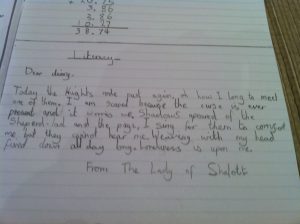Beautiful lies…
If you want to tell the truth, tell tales. Facts alone are not enough – you need fiction. Back in 1861, Charles Reade brought this vividly to life in the opening lines of his novel The Cloister and the Hearth…
“Not a day passes over the earth, but men and women of no note do great deeds, speak great words, and suffer noble sorrows. Of these obscure heroes…the greater part will never be known…their lives and characters lie hidden from nations in the annals that record them. The general reader cannot feel them, they are presented so curtly and coldly…they are not like living breathing stories appealing to the heart…nor can he understand them…for epitomes are not narratives, as skeletons are not human figures… Here, then, the writer of fiction may be of use to the public – as an interpreter…
There is a musty chronicle, written in intolerable Latin, and in it a chapter where every sentence holds a fact. Here is told, with harsh brevity, the strange history of a pair, who lived untrumpeted, and died unsung, four hundred years ago; and lie now, as unpitied, in that stern page, as fossils in a rock. Thus, living or dead, fate is still unjust to them. For if I can but show you what lies below that dry chronicler’s words, methinks you will correct the indifference of centuries, and give those two sore-tried souls a place in your heart – for a day.”
As Charles Reade attests, to free what really matters, what you really want to get across, from the deadweight of dry facts, you need imagination – that flight of the mind that can uncover and convey the hidden meanings, the true messages at the heart of your story.
For fiction is, after all, the truth wrapped up in a beautiful lie.



